How should you prepare for your discharge?
It is possible that you will be discharged as early as the second day after the operation at 11 a.m. It is preferable that one of your family members be present for your return home. They can also accompany you over the next few days to your appointments.
Depending on your health status, the doctor may prescribe a home carer (for cleaning, meals, etc.) in collaboration with the Geneva Home Assistance Institution (Institution genevoise de maintien à domicile (imad))
At the time of your discharge, the health care team will give you a file, including the medical certificate, the prescription, the discharge notice and the outpatient appointment for your bandages.
If the surgeon used sutures, they will be removed as early as the 8th post-operative day, depending on the wound condition of the wound (around 3 days after your discharge) or on the 14th day if this is a repeat intervention. Once the sutures are removed, you no longer need a bandage and you can take showers, but no baths for four weeks. If the surgeon has used glue (Dermabond Prineo), you can shower because this transparent dressing is waterproof. This is left in place for 14 days. In case the glue on the dressing detaches, contact your neurosurgeon for a wound check. The dressing and the remaining glue will be detached during your consultation appointment at the hospital. You may not take baths or go swimming for one month after the intervention.
After this, avoid rubbing or scratching the scar. Do not apply any ointment, cream or oil to this area.
INFO +
If you are constipated when you leave the hospital, do not hesitate to talk to your doctor. In fact, medication, bed rest, anesthesia and slowing down your daily activities can slow down bowel function. At home, prevent constipation by eating a diet high in fiber and drinking enough (1.5 liters of water per day).
What happens next?
Good daily behavior is essential. For the first six weeks after the operation, follow the advice given to you by the physical therapists, including the following:
- do the exercises you learned at the hospital every day
- turn on your side in one movement and straighten up, keeping your back straight when you get up from the bed
- keep your back straight, without twisting or flexing the lumbar region, while doing your various daily activities (washing yourself, getting dressed, cleaning, cooking, etc.)
- use a cup to brush your teeth
- walk, but avoid rough terrain
- avoid sudden back movements and do not wear shoes with heels higher than 5 cm
- limit the loads you carry to a maximum of 5 kilos each and carry them as close to your body as possible
- stay lying on your back during sexual activities.
DID YOU KNOW?
After your discharge, you may be contacted by the Infection Prevention and Control Service as part of the Swiss Surgical Wound Care Program.
Good daily behavior
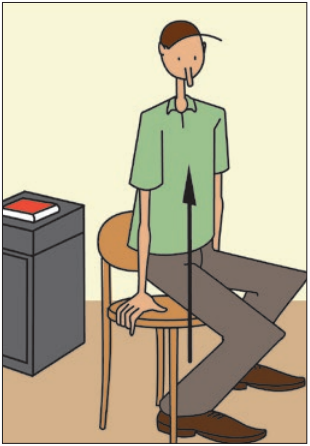
Stand up, back straight, to pick up an item behind you
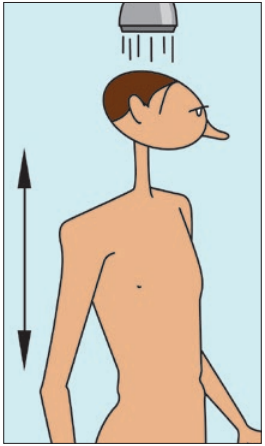
Keep standing while you shower
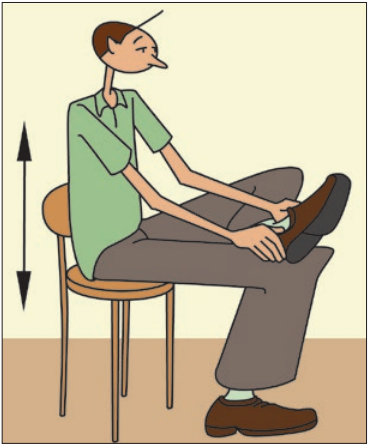
Remain seated to put on your shoes
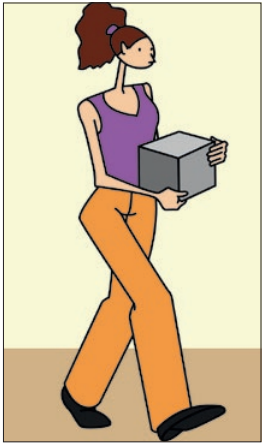
Carry a weight less than 5kg pressed against you
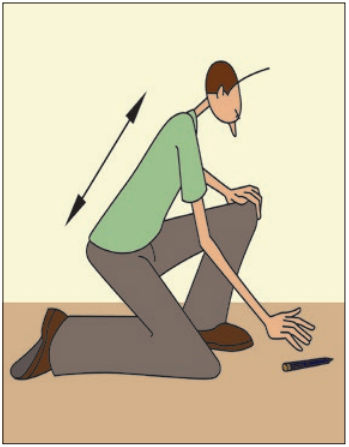
Bend your legs to pick up an item from the ground
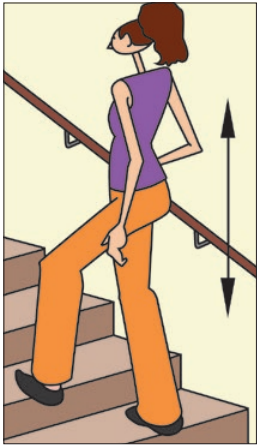
Keep your back straight
INFO +
In order to provide you with information about what happens after a herniated disc, the Neurosurgery Division has produced a video.
Resuming activities
Do not drive your vehicle for the first two weeks. During this period, you can travel as a passenger for short trips by car. If you need to take a longer trip, we recommend that you make frequent stops.
Resuming your work activities and sports will be determined based on your progress. You will be on sick leave for a period of 6 to 12 weeks. Move, but always follow the instructions you were given.
Medical visit
Four to twelve weeks after the procedure, you will see your neurosurgeon at a consultation for a radiological check and to set up a physical therapy program. This appointment will be set up during your discharge and sent to your home by the Neurosurgery administrative office.
Hospitalization costs
The hospitalization costs are covered by basic health insurance (LAMal) after deducting deductible and your co-pay (10% of the costs).
